LENA MALEŠEVIĆ PEROVIĆ, Course leader
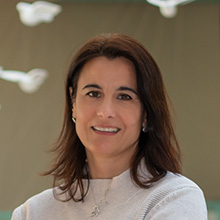 Full professor at Faculty of Economics, Business and Tourism Split, University of Split and Head of doctoral studies in Economics at the same Faculty. She is also CERGE-EI (Prague, Czech Republic) Teaching Fellow. She obtained her MA in 2002, and Phd in 2007 at Staffordshire University, Stoke-on-Trent (UK). She teaches Macroeconomics I, II and III and Macroeconomic Planning at the undergraduate and graduate level. She actively participates in domestic and international scientific projects. Her research interests include fiscal and monetary policy, issues of growth, inflation, public debt, government expenditures and sustainable development. Her current research work is dedicated to behavioral and experimental economics.
Full professor at Faculty of Economics, Business and Tourism Split, University of Split and Head of doctoral studies in Economics at the same Faculty. She is also CERGE-EI (Prague, Czech Republic) Teaching Fellow. She obtained her MA in 2002, and Phd in 2007 at Staffordshire University, Stoke-on-Trent (UK). She teaches Macroeconomics I, II and III and Macroeconomic Planning at the undergraduate and graduate level. She actively participates in domestic and international scientific projects. Her research interests include fiscal and monetary policy, issues of growth, inflation, public debt, government expenditures and sustainable development. Her current research work is dedicated to behavioral and experimental economics.
DRAŽEN PRELEC
 The Digital Equipment Corp. Leaders for Global Operations Professor of Management and a Professor of Management Science and Economics at the MIT Sloan School of Management.Prelec holds appointments in the Department of Economics and in the Department of Brain and Cognitive Sciences. His research deals with the psychology and neuroscience of decision-making, including behavioral economics and neuroeconomics, risky choice, time discounting, self-control, and consumer behavior. He works on both the development of normative decision theory and the exploration of the empirical failures of that theory, using behavioral and fMRI methods. A current project on “self-signaling” tries to understand the strange power of non-causal motivation—when individuals favor actions that are diagnostic of good outcomes, even though these actions have little or no causal force. Diagnostic motivation is real, and is probably essential for human self-control. Its cognitive and neural mechanisms are not well understood, however. A second “Bayesian truth serum” project deals with scoring systems for evaluating individual and collective judgment in knowledge domains where no external truth criterion is available. Examples would be long-range forecasts, political or historical inferences, and artistic or legal interpretations. Prelec is developing scoring systems that reward honest judgments and that can identify truth even when majority opinion is wrong. He was a Junior Fellow in the Harvard Society of Fellows, and has received a number of distinguished research awards, including the John Simon Guggenheim Fellowship. Prelec holds an AB in applied mathematics from Harvard College and a PhD in experimental psychology from Harvard University.
The Digital Equipment Corp. Leaders for Global Operations Professor of Management and a Professor of Management Science and Economics at the MIT Sloan School of Management.Prelec holds appointments in the Department of Economics and in the Department of Brain and Cognitive Sciences. His research deals with the psychology and neuroscience of decision-making, including behavioral economics and neuroeconomics, risky choice, time discounting, self-control, and consumer behavior. He works on both the development of normative decision theory and the exploration of the empirical failures of that theory, using behavioral and fMRI methods. A current project on “self-signaling” tries to understand the strange power of non-causal motivation—when individuals favor actions that are diagnostic of good outcomes, even though these actions have little or no causal force. Diagnostic motivation is real, and is probably essential for human self-control. Its cognitive and neural mechanisms are not well understood, however. A second “Bayesian truth serum” project deals with scoring systems for evaluating individual and collective judgment in knowledge domains where no external truth criterion is available. Examples would be long-range forecasts, political or historical inferences, and artistic or legal interpretations. Prelec is developing scoring systems that reward honest judgments and that can identify truth even when majority opinion is wrong. He was a Junior Fellow in the Harvard Society of Fellows, and has received a number of distinguished research awards, including the John Simon Guggenheim Fellowship. Prelec holds an AB in applied mathematics from Harvard College and a PhD in experimental psychology from Harvard University.
HAN BLEICHRODT
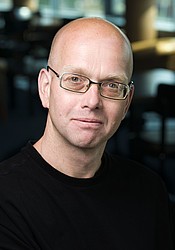 Professor of behavioural economics at the Erasmus School of Economics. He completed his Ph.D. in 1996 at Erasmus University Rotterdam. Professor Bleichrodt's research activities focus on decisions under uncertainty and over time. He has a particular interest in those decisions involving health. He is an author and co-author of numerous publications and research work for which he won numerous awards such as Decision Analysis 2003 publications award (best paper published in decision analysis in 2001) and Decision Analysis 2009 publications awards (best paper published in decision analysis in 2007). Between 2014 and 2018, he was a department editor Decision Analysis of Management Science. He is a winner of Top Senior Researcher Erasmus School of Economics (for years 2007, 2008, 2009, 2010, 2011), ERIM High Performance Member (for period from 2010 to 2018); Distinguished Service Award Management Science (for period from 2009 to 2013) and Umbra Erasmi medal Erasmus University in 2015.
Professor of behavioural economics at the Erasmus School of Economics. He completed his Ph.D. in 1996 at Erasmus University Rotterdam. Professor Bleichrodt's research activities focus on decisions under uncertainty and over time. He has a particular interest in those decisions involving health. He is an author and co-author of numerous publications and research work for which he won numerous awards such as Decision Analysis 2003 publications award (best paper published in decision analysis in 2001) and Decision Analysis 2009 publications awards (best paper published in decision analysis in 2007). Between 2014 and 2018, he was a department editor Decision Analysis of Management Science. He is a winner of Top Senior Researcher Erasmus School of Economics (for years 2007, 2008, 2009, 2010, 2011), ERIM High Performance Member (for period from 2010 to 2018); Distinguished Service Award Management Science (for period from 2009 to 2013) and Umbra Erasmi medal Erasmus University in 2015.
ZVONIMIR BAŠIĆ
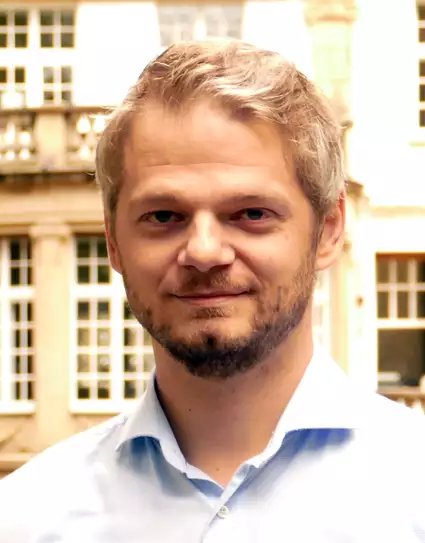
Zvonimir Bašić is a Lecturer (Assistant Professor) in Economics at the Adam Smith Business School, University of Glasgow. He is an applied microeconomist specialized in behavioral and experimental economics. His research mainly focuses on understanding the foundations of prosocial, cooperative, and moral behavior. Prior to position in Glasgow, he obtained a PhD from the Bonn Graduate School of Economics (BGSE) and was a Senior Research Fellow (Postdoc) at the Max Planck Institute for Research on Collective Goods.
SILVIA GOLEM
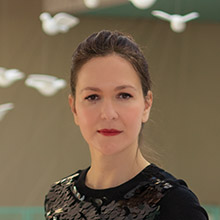 Associate professor at Faculty of Economics, Business and Tourism Split, University of Split and CERGE-EI Teaching Fellow. She obtained her Phd diploma in Economics at Staffordshire University, Stoke-on-Trent (UK). At the present time, she teaches different courses: Methodology of Economic Research, Urban Economics, Spatial Economics and Macroeconomic Planning. She actively participates in scientific projects mainly related to methodology of economic research, urban and public economics.
Associate professor at Faculty of Economics, Business and Tourism Split, University of Split and CERGE-EI Teaching Fellow. She obtained her Phd diploma in Economics at Staffordshire University, Stoke-on-Trent (UK). At the present time, she teaches different courses: Methodology of Economic Research, Urban Economics, Spatial Economics and Macroeconomic Planning. She actively participates in scientific projects mainly related to methodology of economic research, urban and public economics.
IVAN ROMIĆ
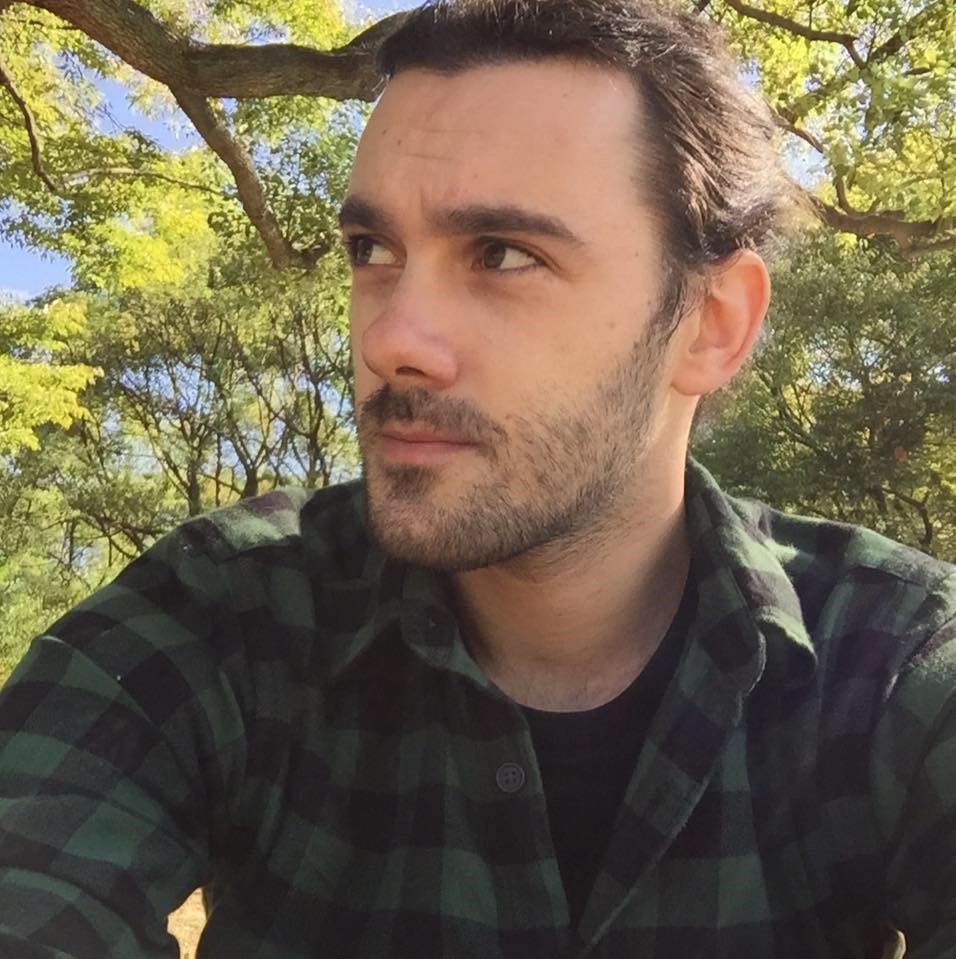 Ivan Romić is an assistant professor at Center for Computational Social Science (CCSS) at Kobe University. He obtained a PhD in Economics in 2019 from Graduate School of Economics at Osaka City University and Master's Degree in Economics in 2013 from Graduate School of Economics at University of Split. In his research he uses methods from computational social science and evolutionary game theory to study prosocial behavior in humans, as well as provisioning and maintenance of public and common goods in society and nature.
Ivan Romić is an assistant professor at Center for Computational Social Science (CCSS) at Kobe University. He obtained a PhD in Economics in 2019 from Graduate School of Economics at Osaka City University and Master's Degree in Economics in 2013 from Graduate School of Economics at University of Split. In his research he uses methods from computational social science and evolutionary game theory to study prosocial behavior in humans, as well as provisioning and maintenance of public and common goods in society and nature.
FERNANDO P. SANTOS
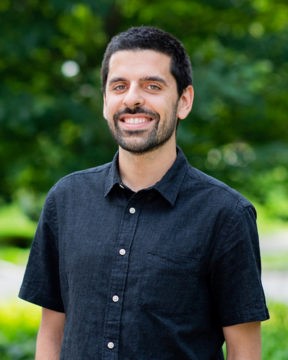 Fernando P. Santos is an assistant professor at the Informatics Institute of the University of Amsterdam (Field of research; Multiagent systems, Game Theory, Complex networks). He completed his MSc in Computer Science (2013) and his PhD (2018) at the University of Lisbon, Instituto Superior Técnico (IST, Lisboa). Between 2018 and 2021, he was a James S. McDonnell Postdoctoral Fellow at Princeton University. He won the Victor Lesser Distinguished Dissertation Award by the International Foundation for Autonomous Agents and Multiagent Systems (2019), the Best PhD Thesis in Artificial Intelligence (2017-2018) by the Portuguese Association for Artificial Intelligence and the INESC-ID award for Best PhD student (2017). He also worked as a research assistant at GAIPS (INESC-ID) and as a member of the ATP-Group. He served as teaching assistant at the Department of Computer Science and Engineering of IST and was a visiting student at Princeton University, TU Delft (The Netherlands) and the Université Libre de Bruxelles (Belgium). His research work lies at the interface of AI and complex systems. His research work lies at the interface of AI and complex systems.
Fernando P. Santos is an assistant professor at the Informatics Institute of the University of Amsterdam (Field of research; Multiagent systems, Game Theory, Complex networks). He completed his MSc in Computer Science (2013) and his PhD (2018) at the University of Lisbon, Instituto Superior Técnico (IST, Lisboa). Between 2018 and 2021, he was a James S. McDonnell Postdoctoral Fellow at Princeton University. He won the Victor Lesser Distinguished Dissertation Award by the International Foundation for Autonomous Agents and Multiagent Systems (2019), the Best PhD Thesis in Artificial Intelligence (2017-2018) by the Portuguese Association for Artificial Intelligence and the INESC-ID award for Best PhD student (2017). He also worked as a research assistant at GAIPS (INESC-ID) and as a member of the ATP-Group. He served as teaching assistant at the Department of Computer Science and Engineering of IST and was a visiting student at Princeton University, TU Delft (The Netherlands) and the Université Libre de Bruxelles (Belgium). His research work lies at the interface of AI and complex systems. His research work lies at the interface of AI and complex systems.
JOSIPA VIŠIĆ
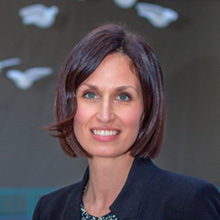 Joined the Faculty of Economics, Business and Tourism, University of Split team in 2006. She is an associate professor and has been Deputy Head of the Department for Economics at FEBT. She teaches several courses on undergraduate, graduate and postgraduate levels related to microeconomics and corporate restructuring. Further, she has been involved in the Professional practice – Service Learning course as a mentor. Over the years, Josipa has been enrolled in various scientific and professional projects. She is a member of the Croatian Operational Research Society (CRORS) and a member of the organising committee of The International Conference on Operational Research (KOI). Her research interests have previously been related to microeconomic aspects of mergers and acquisitions. However, recently, her research has been more directed toward the economic aspects of robotisation and the ageing of the population. In other words, she plans to focus more on the microeconomic perspective of these two inevitable economic and social changes.
Joined the Faculty of Economics, Business and Tourism, University of Split team in 2006. She is an associate professor and has been Deputy Head of the Department for Economics at FEBT. She teaches several courses on undergraduate, graduate and postgraduate levels related to microeconomics and corporate restructuring. Further, she has been involved in the Professional practice – Service Learning course as a mentor. Over the years, Josipa has been enrolled in various scientific and professional projects. She is a member of the Croatian Operational Research Society (CRORS) and a member of the organising committee of The International Conference on Operational Research (KOI). Her research interests have previously been related to microeconomic aspects of mergers and acquisitions. However, recently, her research has been more directed toward the economic aspects of robotisation and the ageing of the population. In other words, she plans to focus more on the microeconomic perspective of these two inevitable economic and social changes.
ANGELO ROMANO
 Angelo Romano is an Assistant Professor at the unit Social, Economic and Organisational Psychology at the Institute of Psychology. He is interested in understanding the psychology of conflict and cooperation among people, groups, and nations.He applies theory and methods from economics, social psychology and evolutionary biology to investigate:(a) the relation between ingroup favoritism and reputation-based cooperation, (b) the predictive power of different psychological mechanisms (e.g. reciprocity, conformity) in promoting cooperation, and (c) cross-cultural differences in intergroup discrimination in trust and cooperation. He completed Master;s degree in mind sciences summa cum laude from the University of Turin (2012-2014) and Double Ph.D. at Vrije Universiteit Amsterdam, the Netherlands and University of Turin, Italy in January, 2018. He is a winner of Otto Hahn Medal for the year 2018 by the Max Planck Society for his work on human cooperation and parochial altruism across societies; best dissertation in social psychology award in Italy (for the year 2017-2018); ASPO award for best dissertation in the Netherlands; Faculty Junior Career Award, Department of Experimental and Applied Psychology, Vrije Universiteit Amsterdam and Best Presentation Award, 17th International Conference on Social Dilemmas (2017).
Angelo Romano is an Assistant Professor at the unit Social, Economic and Organisational Psychology at the Institute of Psychology. He is interested in understanding the psychology of conflict and cooperation among people, groups, and nations.He applies theory and methods from economics, social psychology and evolutionary biology to investigate:(a) the relation between ingroup favoritism and reputation-based cooperation, (b) the predictive power of different psychological mechanisms (e.g. reciprocity, conformity) in promoting cooperation, and (c) cross-cultural differences in intergroup discrimination in trust and cooperation. He completed Master;s degree in mind sciences summa cum laude from the University of Turin (2012-2014) and Double Ph.D. at Vrije Universiteit Amsterdam, the Netherlands and University of Turin, Italy in January, 2018. He is a winner of Otto Hahn Medal for the year 2018 by the Max Planck Society for his work on human cooperation and parochial altruism across societies; best dissertation in social psychology award in Italy (for the year 2017-2018); ASPO award for best dissertation in the Netherlands; Faculty Junior Career Award, Department of Experimental and Applied Psychology, Vrije Universiteit Amsterdam and Best Presentation Award, 17th International Conference on Social Dilemmas (2017).
ALESSIA DORIGONI
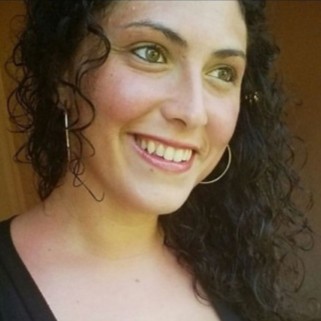 Alessia Dorigoni is a postdoctoral researcher at the Neuroscience Consumer Lab within the Department of Economics at the University of Trento, Italy. She obtained her Master's degree in Psychology from the same institution, followed by a Ph.D. in Economics and Management. Her primary research interests encompass Behavioral and Experimental Economics, with a specific emphasis on consumer decision-making processes and the implementation of nudging strategies. In pursuit of her research objectives, she employs various neuroscience methodologies, including galvanic skin response, eye-tracking technology, and facial expression analysis. She conducts her experiments both in controlled laboratory settings and through the establishment of field experiments, thereby ensuring comprehensive and contextually relevant insights.
Alessia Dorigoni is a postdoctoral researcher at the Neuroscience Consumer Lab within the Department of Economics at the University of Trento, Italy. She obtained her Master's degree in Psychology from the same institution, followed by a Ph.D. in Economics and Management. Her primary research interests encompass Behavioral and Experimental Economics, with a specific emphasis on consumer decision-making processes and the implementation of nudging strategies. In pursuit of her research objectives, she employs various neuroscience methodologies, including galvanic skin response, eye-tracking technology, and facial expression analysis. She conducts her experiments both in controlled laboratory settings and through the establishment of field experiments, thereby ensuring comprehensive and contextually relevant insights.
TOMASZ KOPCZEWSKI
 Tomasz Kopczewski is an associate professor at the University of Warsaw (Poland), Faculty of Economic Sciences. His main areas of interest are teaching and research in the field of microeconomics. He has innovatively reversed the traditional flow of knowledge, directing it from teaching to research rather than from research to teaching. His primary focus is on the methods of acquiring economic knowledge, positioning himself as an economic knowledge engineer who invents new teaching tools to enhance the two-way knowledge flow. Over the years, Kopczewski has developed a teaching methodology called "Know Yourself." This methodology combines experimental/behavioural economics, Data Science tools, Monte Carlo simulations, physics, philosophy, and ethics. It blends orthodox and heterodox economic theories, forming a coherent educational and research program that bridges the gap between these divergent economic schools. The methodology aligns with Vernon Smith's vision of humanistic economics, which is grounded in experimental research results and the concept of ecological rationality, where the logical reasoning and creation of social norms are given equal importance. His recent research works focus on: i) "unfreezing" time in economic theory and the analysis of non-ergodic processes ii) placing ethical dilemmas in orthodox economic theory iii) analyzing the emergence and spread of collective knowledge and its impact on economic decisions.
Tomasz Kopczewski is an associate professor at the University of Warsaw (Poland), Faculty of Economic Sciences. His main areas of interest are teaching and research in the field of microeconomics. He has innovatively reversed the traditional flow of knowledge, directing it from teaching to research rather than from research to teaching. His primary focus is on the methods of acquiring economic knowledge, positioning himself as an economic knowledge engineer who invents new teaching tools to enhance the two-way knowledge flow. Over the years, Kopczewski has developed a teaching methodology called "Know Yourself." This methodology combines experimental/behavioural economics, Data Science tools, Monte Carlo simulations, physics, philosophy, and ethics. It blends orthodox and heterodox economic theories, forming a coherent educational and research program that bridges the gap between these divergent economic schools. The methodology aligns with Vernon Smith's vision of humanistic economics, which is grounded in experimental research results and the concept of ecological rationality, where the logical reasoning and creation of social norms are given equal importance. His recent research works focus on: i) "unfreezing" time in economic theory and the analysis of non-ergodic processes ii) placing ethical dilemmas in orthodox economic theory iii) analyzing the emergence and spread of collective knowledge and its impact on economic decisions.